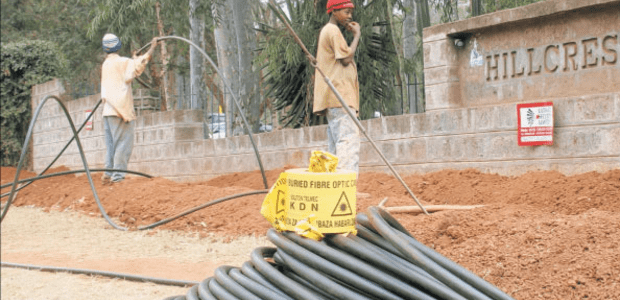advertisement
Government losing upto Kshs 2 billion annually due to disruption of critical infrastructure
The Kenya government is making direct loses of between Kshs 1.5 billion to Kshs 2 billion annually due to interference…

The Kenya government is making direct loses of between Kshs 1.5 billion to Kshs 2 billion annually due to interference of critical infrastructure in the ministries of Information, Communication and Technology, Energy and Petroleum and Industrialization and Enterprise Development.
This was announced by Cabinet Secretary Ministry of ICT, Dr Fred Matiang’i during the opening ceremony of Formulation of Critical Infrastructure Protection Bill.
“We are making direct losses annually of up to 2 billion due to interference of critical infrastructure. The indirect loses we make are still unaccounted for. This is causing us to lag behind especially in businesses run by the private sector. We as the government cannot afford the costs incurred by this losses therefore we need to organize ourselves to take care of the critical infrastructures. We therefore think coming up with a legislation will be the best way forward,“ said Matiang’i.
advertisement
Traditionally, critical infrastructure has been considered to include roads, power lines and water reticulation systems. However as Information and Communication Technology (ICT) is rapidly being assimilated into all aspects of life, its underlying infrastructure such as telecommunication cables, distribution cabinets, towers and data centres have now become one of the critical infrastructure and many times it is implemented adjacent to or within the traditional ones.
Currently the deployment, maintenance and protection of these Critical Infrastructures are done in an independent and uncoordinated manner leading to disruption of essential services and losses due to accidental damage. Most of these ICT services are implemented and managed by private sector players.
To protect the critical infrastructure, Matiang’i pointed that there was need to consider having a whole inclusive approach in the planning, designing and implementation of the critical infrastructure so that ICT sub components become part of it. It is on this basis that the government and the private sector considered it necessary to come up with a legislation to guide the implementation and management of critical infrastructure.
advertisement
“This saw the birth of interministerial taskforce put up by the President to come up with a framework policy. With a new legislation in place we will have an assurance to investors, knowing that there is a law protecting their facilities as they even choose to invest here,” he added.
He also pointed out that the policy was in line with the ICT Masterplan and was also a commitment made to the EAC adding that as the Government they were looking at pushing the draft to Parliament so that it is passed as a law by year end to help at least reduce the losses by at least Kshs 500 million by end year calling upon the pubic to take responsibility to protect the infrastructure as a lot of tax payers money is used to put up the infrastructure and repair or replace once they are damaged due to vandalism and theft.
On the 27th March 2015, a taskforce drawn from members from the private and public sector was constituted to oversee the process of formulation. The Cabinet Secretary, Ministry of Information Communication and Technology officially appointed a task-force bill under the Kenya Information and Communications Act Cap 411A.
advertisement
During the Connected East Africa Summit held in Diani, Matiang’I also pointed out that the Ministry of ICT wanted governors to compel people putting up houses in the counties to put in provisions for critical infrastructure when putting in new buildings.
“The central government cannot be relied to do everything and we are hoping to bring in the county government in to this because these resources will be used to their advantage,” he added.
He also pointed that the Government was carrying out a pilot in the informal settlements of Mukuru kwa Njenga and Kibera using resources from the Universal Service Fund to enable the Government to deliver free WiFi to the residents of those areas.